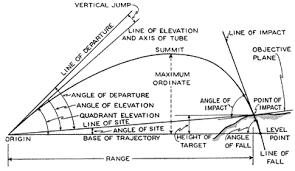
记忆方法
将“ballistics”分解为“ball”和“istics”。想象一个“ball”被抛向高空,它在空中运动的过程中形成了一门“science”或“study”(istics),即研究弹道学或射弹学。这种方法将单词分解成易于记忆的组成部分,帮助构建意义关联。
以上内容由AI生成, 仅供参考和借鉴
英语词源
- ballistics (n.)
- 1753, "art of throwing; science of projectiles," with -ics + Latin ballista "ancient military machine for hurling stones," from Greek ballistes, from ballein "to throw, to throw so as to hit," also in a looser sense, "to put, place, lay;" from PIE root *gwele- (1) "to throw, reach," in extended senses "to pierce" (cognates: Sanskrit apa-gurya "swinging," balbaliti "whirls, twirls;" Greek bole "a throw, beam, ray," belemnon "dart, javelin," belone "needle"). Here, too, probably belongs Greek ballizein "to dance," literally "to throw one's body," ancient Greek dancing being highly athletic.
权威例句
- 1. The weapons are undergoing ballistics tests to see whether they were used in the shootings.
- 这些武器正在接受弹道测试,以确定它们是否曾用于枪击案中。
- 2. Ballistics don't match, and his gun was never fired.
- 弹道学不匹配, 而且他的枪根本没有发射过.
- 3. Ballistics was used in the criminal case to determine the gun's firing capacity.
- 在该刑事案件中人们运用弹道学原理来确定枪的发射力.
- 4. A ballistics expert were taking evidence at the scene of the crime.
- 一位弹道学家正在犯罪现场提取证据.
- 5. Terminal Ballistics deals with the impact of projectiles on a target.
- 终点弹道学研究的是射弹的弹著作用.